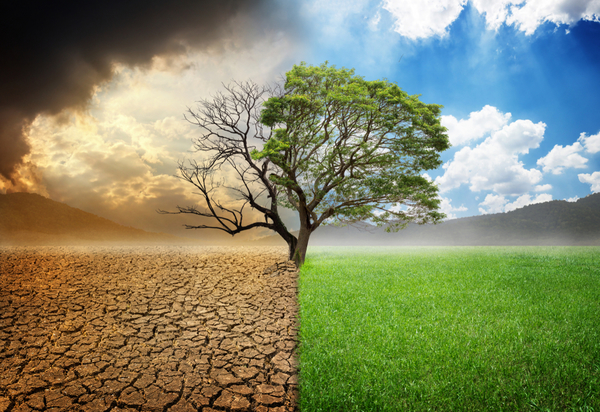A new report on climate change paints a grim picture for the globe’s future. In the latest Intergovernmental Panel on Climate Change report, which was released on Monday, scientists conclude that human-induced climate change is causing dangerous and widespread disruption in nature and affecting the lives of billions of people around the world, and any further delay in concerted global action will miss a brief and rapidly closing window to secure a livable future.
Per the report, the world faces multiple — and inescapable — climate dangers over the next two decades with global warming of 1.5°C (2.7°F). And if this warming level is exceeded even temporarily, Earth will face severe and irreversible effects.
“This report is a dire warning about the consequences of inaction,” said Hoesung Lee, Chair of the IPCC, in a news release announcing the report. “It shows that climate change is a grave and mounting threat to our wellbeing and a healthy planet. Our actions today will shape how people adapt and nature responds to increasing climate risks.”
Increased heatwaves, droughts, and floods are already exceeding plants’ and animals’ tolerance thresholds, driving mass mortalities in species such as trees and corals. These weather extremes are occurring simultaneously, causing cascading impacts that are increasingly difficult to manage.
To avoid mounting loss of life, biodiversity, and infrastructure, ambitious, accelerated action is required to adapt to climate change, as are rapid, deep cuts in greenhouse gas emissions. So far, progress on adaptation is uneven, and the gaps between action taken and what is needed to deal with the growing risks are increasing. These gaps are largest among lower-income populations.
The report notes that options to adapt to a changing climate are available.
“Healthy ecosystems are more resilient to climate change and provide life-critical services such as food and clean water,” said IPCC Working Group II Co-Chair Hans-Otto Pörtner. “By restoring degraded ecosystems and effectively and equitably conserving 30 to 50 percent of earth’s land, freshwater and ocean habitats, society can benefit from nature’s capacity to absorb and store carbon, and we can accelerate progress towards sustainable development, but adequate finance and political support are essential.”
Scientists point out that climate change interacts with global trends such as unsustainable use of natural resources, growing urbanization, social inequalities, losses and damages from extreme events, and a pandemic, jeopardizing future development.
IPCC Working Group II Co-Chair Debra Roberts added that “tackling all these different challenges involves everyone – governments, the private sector, civil society – working together to prioritize risk reduction, as well as equity and justice, in decision-making and investment.”
For more news, information, and strategy, visit the Climate Insights Channel.

